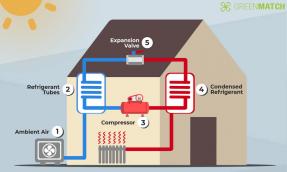
Have you woken up or tried to work to the sound of a noisy leaf blower? Have you gotten caught in the gas fumes behind gas powered lawn and other maintenance equipment? Lawn maintenance and outdoor power equipment such as mowers, leaf blowers, edgers, trimmers, and chain saws are clearly pesty, unhealthy, and cause negative environmental and climate impacts. Fortunately, a better option already exists. Due in large part to continuous improvements in battery technology in recent years, electric lawn and maintenance products provide a quieter, healthier, and cleaner alternative to gas-powered equipment and are rapidly growing in popularity. There are also now electric rototillers, power washers, and snow blowers. This equipment is cost competitive, the technology is comparable or better than gas powered equipment in terms of performance, and electric equipment offers added features like the ability to program and connect to the machines, and to charge them with renewable energy. Some electric maintenance equipment is even autonomous. (What will we do with all that extra time?)
Interestingly, there’s a fairly wide coalition of people, organizations, and officials interested in electric lawn care and related maintenance products. Why? Because electric equipment is quieter, cleaner, safer and easier to use and maintain. Electric equipment also saves money at the town, institutional, and even individual homeowner level. These products return the additional cost of investment, and then provide a return, compared to gas equipment by eliminating the need to purchase fuel and to pay for the increased maintenance and parts associated with small combustion engines.
Top benefits of electric lawn and other maintenance products include:
- Environmental/Climate Benefits
- No greenhouse gas emissions on site, and lower energy consumption due to greater efficiency
- No chemical spillage to pollute water or soil
- No chemical cleaners, solvents and degreasers required for combustion engine maintenance
- Reduced solid waste due to filters, spark plugs and other combustion engine parts that require repair and replacement
- Immediate Community, Environmental and Health Benefits
- Less noise
- Lower air pollution
- No chemical spillage
- Cost Savings
- Lower energy use/costs
- Less maintenance
- Safer and easier for the operator to use
- Easier to use and maintain
- Lighter weight
- Less vibration
- Lower noise levels
- More efficient
- No need to work with gas
- Avoid fumes
- Avoid working with gasoline and other toxic solvents
Clearly, lower emissions and greater energy efficiency provide environmental and climate benefits. What may not be as clear in the above list are the more direct pollution and health impacts to communities where these products are used, and especially to the people who operate the equipment.
Pollution from gas powered lawn and garden equipment (GLGE) can be considerable. Surprisingly, it is estimated that 5-10% of US air pollution is generated by gas lawn equipment, 2/3 of which is produced by lawn mowers specifically. Each gas-powered device may not seem to consume a significant amount of gas, but they are very inefficient in their design and do not have emissions controls or catalytic converters, so they produce raw exhaust emissions. According to the EPA, a new gas-powered lawn mower produces as much volatile organic compounds (VOCs) and Nitrogen Oxides (NOx) one hour as 11 new cars, which have regulated emissions. And there is a lot of this equipment out there.
In the US, GLGE consumes 2.5 billion gallons of gasoline, produced 6-7 tons of toxic and carcinogenic exhaust, and produces more than 20 tons of CO2. Carcinogenic exhaust includes carbon monoxide (CO), and VOCs and NOx, which combine to form ground-level ozone, and fine particulates. Less known might be the amount of solid and toxic waste stress from gas-powered maintenance. The American Green Zone Alliance (AGZA) followed ten ground crews and found that each worker disposes on average 70 bottle, cans tubes, and parts into landfills each year, which can leach toxic chemicals into soil and water. In contrast, electric equipment produces almost no waste stream.
All of this pollution leads to negative health impacts. Ground-level ozone is basically the main component of smog, and is a respiratory irritant, which is also damaging to plants and wildlife. Particulates are basically the smallest form of soot, tiny particles that result from combustion, literally from breathing exhaust. The smaller particulates become, the more they get into the lungs and can get distributed throughout the body. No safe level of exposure has been set for these fine particulates. Health impacts include, asthma, COPD flares, irrigation for those who have respiratory illnesses, cardiovascular disease, heart attacks and strokes. Even mental health effects and other neurodevelopment effects have been indicated.
It may sound like a nuisance complaint to some to express concern about noise, but noise affects human health well beyond simple irritation. The EPA sets hearing guidelines as 55 decibels and OSHA sets the limit at 85 decibels over an 8-hour day, and it is widely reported that extended periods of time at over 80 decibels can cause permanent hearing damage. It’s hard to believe, but many backpack leaf blowers for example operate at 100+ decibels for the operators and at about 80 decibels (76-83 among top brands, according to Quiet Communities) for others, even at about 50 feet away. This type of low frequency noise also travels further, and the vibration causes this noise to penetrate windows and structures. In addition to measurable hearing risks, which are not recoverable, noise causes additional health impacts, which can include increased stress/hormone levels, links to isolation depression and dementia (partially related to the hearing loss), sleep disruption, lost productivity/poorer performance (including test scores for school-aged children), and impaired communication/social interaction.
Health impacts can be significant for those using GLGE equipment, particularly workers who put in long days of strenuous work. Top risks for equipment operators of gas equipment include noise, equipment weight, vibration, and solvent exposure, all of which are magnified with extended and frequent use. All of these factors are also improved, if not eliminated, with electric equipment, though landscaping is also still of course a strenuous occupation. Even in communities that pride themselves in sustainability, worker health is unfortunately not always consciously taken into consideration. The health effects due to extended use of gas equipment use can be considerable and are not necessarily even fully known, although this issue is gaining more attention.
It’s also worth considering that GLGE health impacts are likely to be magnified for vulnerable populations, including those who are younger, older, pregnant women, those who have existing respiratory conditions, and people who are sensitive to sound such as children with special needs. When it comes to landscaping, it’s also important to consider the health of pets and wildlife.
How much does it cost to mow your lawn electrically? Shift 2 Electric has a quick calculation that it costs $1 for every 33 mows in the average city-sized lot of 3000 sf. If your land area is bigger, adjust the calculation as needed. CS Monitor guest author Trent Hamm found that an electric mower costs approximately $1.04, and $4.70 per acre for gas. However, the author reports that electric mowers become even more worthwhile the larger the acreage, just as the acreage makes it easier for the energy savings to pass the gas costs at small levels (taking pollution out of the equation. However, with varying gas, improving technology, and lowering renewable energy costs, the calculations will of course vary by energy prices at the time of use and the purchase price of the technology. Solar Reviews calculated in 2020 that it costs approximately 10 cents to mow a half acre, or about $24 per year, or $191 over ten years. Over the ten year period, the estimate was $490 for a gas-powered mower. Solar Reviews also found that the starting costs for entry level electric lawn care equioment are now similar to that of gas.
A switch to electric equipment is clearly a step in a more sustainable direction, and it makes financial sense over time as well. However, it’s worth noting that the topic of more sustainable lawn care and maintenance is a much wider discussion, one in which we also hope to engage and help educate more widely. Options to reduce noise, energy, and chemical use aside from “going electric" also include converting to “people power” by using manual tools such as rakes, brooms, ground sweepers, hand pruners, hedge shears and reel mowers. Best maintenance practices also include mulching, composting, and organize fertilizing weed and pest control. Addressing the use of chemicals generally in lawn care and maintenance is an essential part of the sustainability discussion, as are considerations of what to plant optimally for many considerations, including water requirements, ecosystem health, and wildlife protection, including pollinator protection.
What is clear is that there are many reasons to stop using gas powered equipment, as choosing electric lawn and garden equipment is a better choice for the crew, the neighborhood, and the planet. It seems that what might currently seem like a more cutting edge, alternate choice will one day be mainstream.
What are your experiences, or your town or company’s experiences, with electric lawn and garden equipment? What service providers or or products have you worked with? We will be happy to add them to our directory, so that you can add comments or a review that can help others who also want to make greener choices. Are you a service provider who can share your expertise or experiences? What have you learned? What did you wish you knew before taking some steps or making certain purchases? Please feel welcome to add your comments below, or to post your own discussion or article we can link to.
Resources for further learning:
American Green Zone Alliance:
https://agza.net/
Quiet Communities:
https://www.quietcommunitiesinc.org/quiet-outdoors
Shift 2 Electric:
https://www.shift2electric.com/electriclawninfo
Perfect Earth Project:
https://perfectearthproject.org/
Fair Warning, story on the health threat of gas powered equipment to landscape workers:
https://www.fairwarning.org/2017/09/leaf-blower/
EPA Report on National Emissions from GLGE (2015):
https://www.epa.gov/sites/production/files/2015-09/documents/banks.pdf
List of Communities with Gas-Powered Equipment and/or Leaf Blower Bans:
https://noisefree.org/sources-of-noise/lawn-and-garden-equipment/
Lists of Electric Landscaping Equipment:
A list of AGZA approved equipment:
https://agza.net/agza-approved-equipment/
American Lung Association List of Battery Powered Mowers:
https://5945fe2f-e780-4c58-a262-bad794e1a3db.filesusr.com/ugd/49f443_ed235f711ea24dceb27ced057829ce2a.pdf
American Lung Association List of Electric Corded Mowers:
https://5945fe2f-e780-4c58-a262-bad794e1a3db.filesusr.com/ugd/49f443_4459895fa8d744fab60ab551117c8131.pdf
Lists of Green Landscapers:
A list of AGZA Service Providers:
https://agza.net/agza-service-pros/
Chevy Chase, Maryland:
http://townofchevychase.org/431/Quiet-and-Clean-Landscapers
Grow Native Massachusetts’ “green” landscape professionals:
https://grownativemass.org/Great-Resources/landscape-professionals
Lexington, Massachusetts:
https://www.lexingtonma.gov/noise-advisory-committee/pages/green-landscapers-who-service-lexington
Princeton, New Jersey:
http://quietprinceton.org/index.php/quietlandscapers/
(*Please share additional lists of service providers with us, and we will list them here!)
Title Image is of an autonomous mower by Husqvarna Group:
http://www.husqvarnagroup.com/
- Filed Under: Landscaping and Land Management
- Keywords : Electrification, Mowers, Edgers, Trimmers, Blowers, Electric Lawn and Garden Equipment, Lawn and Garden Equipment
- ( 13000 ) views

The Rate It Green Team - This is an account for Allison and plenty of kind helpers, for sharing information when/where it really doesn't particularly matter which of us actually posted. Questions? Send us a note through our contact form, or email info@rateitgreen.com.
- ( 0 ) Ratings
- ( 105 ) Discussions
- ( 6 ) Group Posts
Reply/Leave a Comment (You must be logged in to leave a comment)
Great article. I need to share it with NY State government as well as the City of Albany. It seems silly to require reduction in GHG emissions, and then have state workers haul our their gas-powered leaf blowers. Grrr.
By Jodi Smits Anderson I Dec 19, 2020Connect with us!
Subscribe to our monthly newsletter:




























Not a Member Yet? Register and Join the Community | Log in